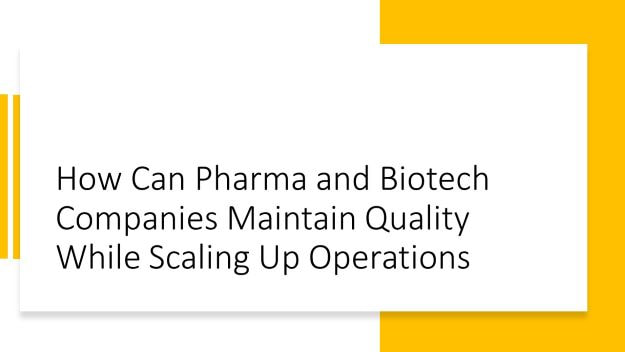Outsourced development and manufacturing services
Outsourced development and manufacturing services are an increasingly attractive option for biopharmaceutical companies. Pharma-biotech companies are often constrained by budgets or lack of resources, and outsourcing offers a flexible and scalable solution. Outsourced services can help pharma-biotech companies scaleup operations and maintain quality. Pharma-biotech companies typically evaluate three to six molecules during the early stages of product development, and they should look to outsource at this stage of their development. (Full disclosure- I am not canvassing for any CRO-CDMO).
Technology transfer
Technology transfer is a critical part of the production process for pharma-biotech. This process requires careful planning to ensure that quality remains high throughout the entire process. The transfer process must cover all aspects of process development, from analytical testing to packaging. In addition, the process should be transparent and cover all the bases, so that there are no unexpected occurrences or issues.
Relevant tech-transfer processes and effective talent management of people doing those tech-transfers assumes significance. I’ve a separate post on ‘Best practices for talent management in pharma companies’, you may check it out here.
Record-keeping
As pharmaceutical and biotech manufacturers scaleup their operations and seek to gain a competitive advantage, record-keeping is increasingly important.
Record-keeping helps ensure that processes and data are accurate and consistent. It also enables companies to achieve greater productivity, leading to lower production costs through economies of scale. This improves the bottom line and gives a company a competitive edge. However, pharma- biotech companies are also required to adhere to stringent regulatory requirements and safeguard the integrity of data.
Digitalization is a promising solution for efficient and effective record-keeping. Having said that, digitalization involves cost and not all companies may have extra funds to spend on it right away. If that’s the case, I would say- Companies can continue to use non-digital means for record-keeping while making sure to implement continuous improvement tools such as Kaizen, to keep their processes relevant.
Effective batch control
In order to ensure the quality of their products, pharma and biotech companies must make use of more data-driven and agile manufacturing methods. Currently, most data are stored in paper binders or siloed applications, which are not easily consumable by operators. This leads to a high risk of human error and a significant amount of overhead.
Installing suitable error-proofing measures to processes can nullify such issues. To know more check out: Mistake-Proofing Pharmaceutical Product Development, Manufacturing and Logistics, Cost Savings via Poka Yoke
Risk-based approach to product development
Using a risk-based approach for product development, pharma-biotech companies can help avoid costly delays. Managing risk effectively is a key component of the drug development process, but it is often neglected. A comprehensive risk management plan based on ICH Q9 can help minimize overall risks and ultimately result in a more efficient development process and higher-quality product.
Single-use equipment
Single-use equipment can provide several benefits to pharma and biotech manufacturing. It eliminates the need for cross-contamination in the production process. Single-use solutions also provide greater mechanical resistance against impacts and tearing.
Overall, based on my first-hand experiences with pharma-biotech manufacturing processes, I would say that- “It is all in your setup and strategy around product manufacturing. They must focus upon three prime areas- (1) A robust quality system. (2) A thorough understanding of your quality data and (3) An engaged quality aspiring work culture. And these three elements cannot be implemented in retrospect.
If you need to scale-up and do not have a handle on these three elements, then I shall suggest, please stop, and re-evaluate your scaleup strategy. Because, not having a state of control over systems and processes and yet moving on with scaleup activities, will end up in gawky quality gaps and bigtime materialization of risks and losses.
Related Reading:
- Kaizen for pharmaceutical, medical device and biotech industries
- How to cut costs strategically using Kaizen
- Streamline processes and workflows with Gemba Walk.
- Top Ten Strategic Decision-Making Tools for Operational Excellence
Follow Shruti on Twitter, Facebook, YouTube, LinkedIn
Categories: Lifesciences | Operational Excellence
Keywords and Tags:
#operationalexcellence #qualitymanagementsystem #QMS #pharmaquality #riskbasedapproach





















